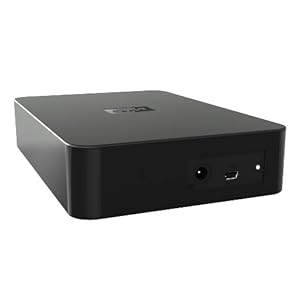4 Mistakes to Avoid When Buying a Horse
There is often a incompatibility between what we horse buyers think we need in a horse and what we categorically need. This muddled thinking has landed me in trouble many times, and plenty of other population I know!
Here are four common mistakes made when buying a horse.
Number One: He's beautiful - I must have him
My first pony was the ugliest thing you ever saw, but a kind and spectacular, friend.
My second equine was the most beautiful horse that walked this earth and the first one I looked at. In love, I failed to understand that the striking Hanoverian was far too strong for me and needed a competent, definite rider. I was neither. He had also been ruined by former owners, which is why he was going so cheaply. After I got him home, my beautiful gray bucked and reared, refused jumps, bolted and commonly made my life miserable.
Instead of being smart and trying out different horses - beautiful or otherwise - plus taking my time over the whole process, I had leapt into a purchase plainly because he looked the part and I swiftly regretted it.
Number Two: He's young - we'll grow old together.
This is a very understandable reckon for acquiring a youngster. After all, we want to keep our horses for many years. We spend much emotion in our equine friends and the pain of losing them is hard to bear.
But if you are an fresh rider the worst thing you can do is buy an fresh young horse. At least one member of the equine/human partnership has to know what they're doing. Otherwise the connection will fail. A young horse will feel insecure colse to an owner who isn't confident, and if not given leadership will swiftly assume it himself. He'll take advantage of his owner, learn bad habits and come to be a perilous bully.
Far from wanting to keep such a horse into old age, the intimidated owner will want to get rid of him as fast as possible. But by then the horse will be hard to sell.
If you are an fresh rider, you need a schoolmaster. This is an older horse who has 'been there, done that' and can give his owner reliance while teaching him or her the ins and outs of horsemanship. With allowable care schoolmasters can live long, useful lives and are worth their weight in gold. My eventer is such a horse. A salutary twenty-year-old, he's still taking care of nervous riders.
Number Three: He's talented - we'll win all things together.
The dealer who sold me the beautiful gray kept telling me the horse would 'make an international showjumper.' I was thrilled at the prospect of owning such a spectacular, athlete!
Did I once think either I myself had the inherent to compete at that level? I was currently jumping three feet high on a good day. Did I need a horse capable of jumping five feet six or more? (Assuming he categorically could.)
It's no use buying a horse that can compete in Grand Prix dressage, four star three day events or puissance jumping - not to mention paying a hefty price for such an animal - if you're not even remotely close to his standard.
While you're trying to catch up, he'll be unlearning his skills. You'll need someone to maintain the horse's training, which ordinarily means you don't get to ride him any more. Because, you'll be firmly told -- as I was -- you are ruining him. You'll end up paying a professional to work with your talented horse while you Watch miserably from the sidelines. It's high-priced and no fun!
Far better to be truthful about your current level of riding. Be humble sufficient to go for a less trained horse. Don't buy a Ferrari when you've just started to drive -- it's a waste of money. There'll still be top level horses out there when you've come to be a top level rider.
Number Four: He's a stallion - I'll be able to breed from him as well as ride him.
We've all seen the romantic movies about beautiful stallions with flowing manes and tails, galloping with carefree abandon. How spectacular, to possess one of those shiny, muscular steeds!
I can tell you from first-hand experience: it isn't. Not if you don't know how to deal with him. I fell in love with a striking stallion at an auction and just 'had' to have him.
A stallion has to be told all the time that you are boss. He has to be turned out alone. If used for breeding as well as riding, he needs to be taught that mares are not fair game while he's under saddle.
My stud enjoyed rearing and hopping on his hind legs and was nicknamed 'Hormones R Us' by my instructor. He was six years old before I ultimately admitted he was too much for me and had him gelded. By then it was too late to make any real difference.
Unless you are a professional with the know-how and capability to take care of stallions, let them remain at a safe, romantic distance!
I often think that buying a horse is similar to getting married after one date. Cut the risk of making a bad decision by frankly assessing your own riding capability and taking good guidance from a trusted instructor or other horse person. By adopting that method I now have three horses with whom I have forged a fulfilling connection over the past eleven years.
Thanks To : Buy Shopping Discount Canon 2711b054 Laser Printer

No comments:
Post a Comment